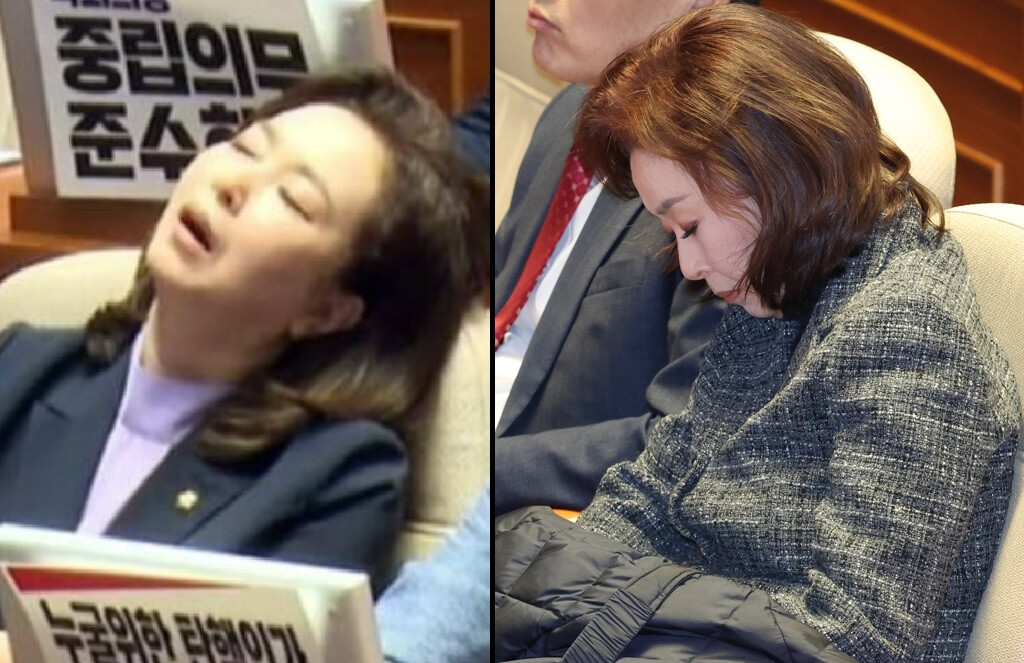
Criticism of the privileges and insincere legislative activities of National Assembly members, who claim to be representatives of the people, is growing. According to data from the last parliamentary audit, the annual personnel and activity expenses per National Assembly member exceed ₩150 million. With a monthly allowance of ₩13.57 million, monthly legislative activity expenses of ₩5 million, plus special activity expenses and policy research funds, the total is truly enormous. When you add the approximately ₩700 million for the salaries of 9 aides and ₩200 million for office operating costs, it appears that over ₩1 billion of public funds are used annually to maintain one National Assembly member. In addition, there are significant contributions from citizens.
However, despite such astronomical support, the legislative activities of National Assembly members are disappointing. The average attendance rate of 20th National Assembly members during the last regular parliamentary audit was only 62%, and there were repeated criticisms that many members were dozing off or doing other things even when present. The criticism that they do not perform proper legislative activities despite receiving over ₩13 million per month in allowances is endless.
Immunity from Arrest: Degenerating into a Get-Out-of-Jail-Free Card for Corruption and Crime
The parliamentary immunity from arrest guaranteed by Article 44 of the Constitution was originally intended to protect legislative activities, but now it is criticized for having been perverted into a get-out-of-jail-free card for various corruptions and crimes. Out of 47 cases in which prosecutors requested consent for arrest immunity from the National Assembly over the past five years, the National Assembly consented to only 12. The remaining 35 cases were dismissed, citing "disruption of legislative activities" as a pretext, effectively shielding even charges of drunk driving, sexual assault, and bribery. The fact that ordinary citizens are immediately arrested for even unlicensed driving, while National Assembly members are protected for drunk driving under the name of "legislative activity," clearly demonstrates inequality before the law.
Performance at the Bottom, Privileges Beyond Imagination
The legislative performance of National Assembly members revealed in the parliamentary audit is even more dismal. Over the past four years, 40% of all members proposed fewer than 10 bills, meaning they receive over ₩13 million per month in allowances even when they fail to properly introduce 2 or 3 bills a year. Considering that the average annual salary of a Korean worker is about ₩35 million, National Assembly members receive approximately four times the average annual salary just from their allowances. Furthermore, according to a survey by the National Election Commission, the average campaign promise fulfillment rate of 20th National Assembly members was only 37%, making it difficult to avoid criticism that they do not even properly keep their election promises.
The privileges enjoyed by National Assembly members are beyond the imagination of ordinary people. There are over 200 types of privileges, including free subway, bus, and KTX passes, access to airport VIP lounges, and golf course discounts. At the National Assembly cafeteria, one can eat a traditional Korean meal for ₩3,000. In addition to various convenience facilities such as a free gym, barbershop, and laundry service, the National Assembly Legislative Training Institute offers luxury hotel-level accommodation for a mere ₩10,000 per night. All these costs are covered by public taxes. Moreover, the practice of even family members enjoying these benefits showcases the extreme sense of privilege.
Public Anger Reaches its Breaking Point
In a reality where young people are struggling with unemployment, middle-aged people are suffering from job insecurity, and self-employed individuals are contemplating closing their businesses due to economic recession, the abuse of privileges by National Assembly members further amplifies public anger. In recent public opinion polls, trust in the National Assembly has plummeted to the 10% range, meaning 9 out of 10 citizens distrust the National Assembly.
If National Assembly members do not reform themselves, the people will have no choice but to act. We can no longer remain indifferent with the attitude of "all politicians are the same anyway." Reducing parliamentary privileges and cutting allowances are not options but necessities. Immunity from arrest must also be significantly restricted so that they bear the same level of legal responsibility as ordinary citizens. In the next election, we must judge the vested-interest politicians who are complacent with their privileges and elect politicians who truly work for the people, so that the National Assembly can be reborn as a representative body of the people. Some even advocate extreme claims, such as converting National Assembly members to unpaid volunteer positions and entrusting policy decisions to artificial intelligence. This is evidence of how deep the public's distrust and disappointment with the current National Assembly members are.
[Copyright (c) Global Economic Times. All Rights Reserved.]



























